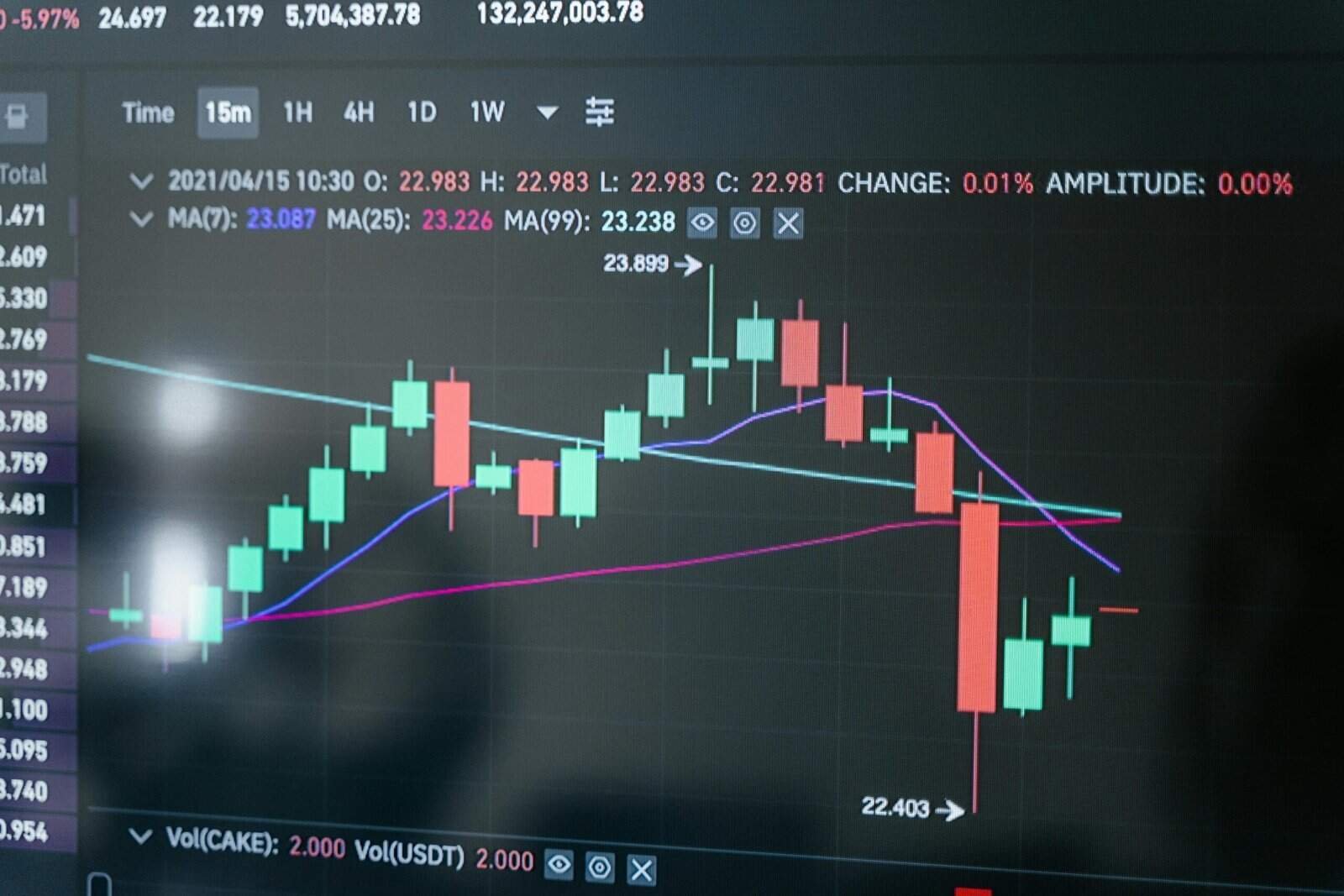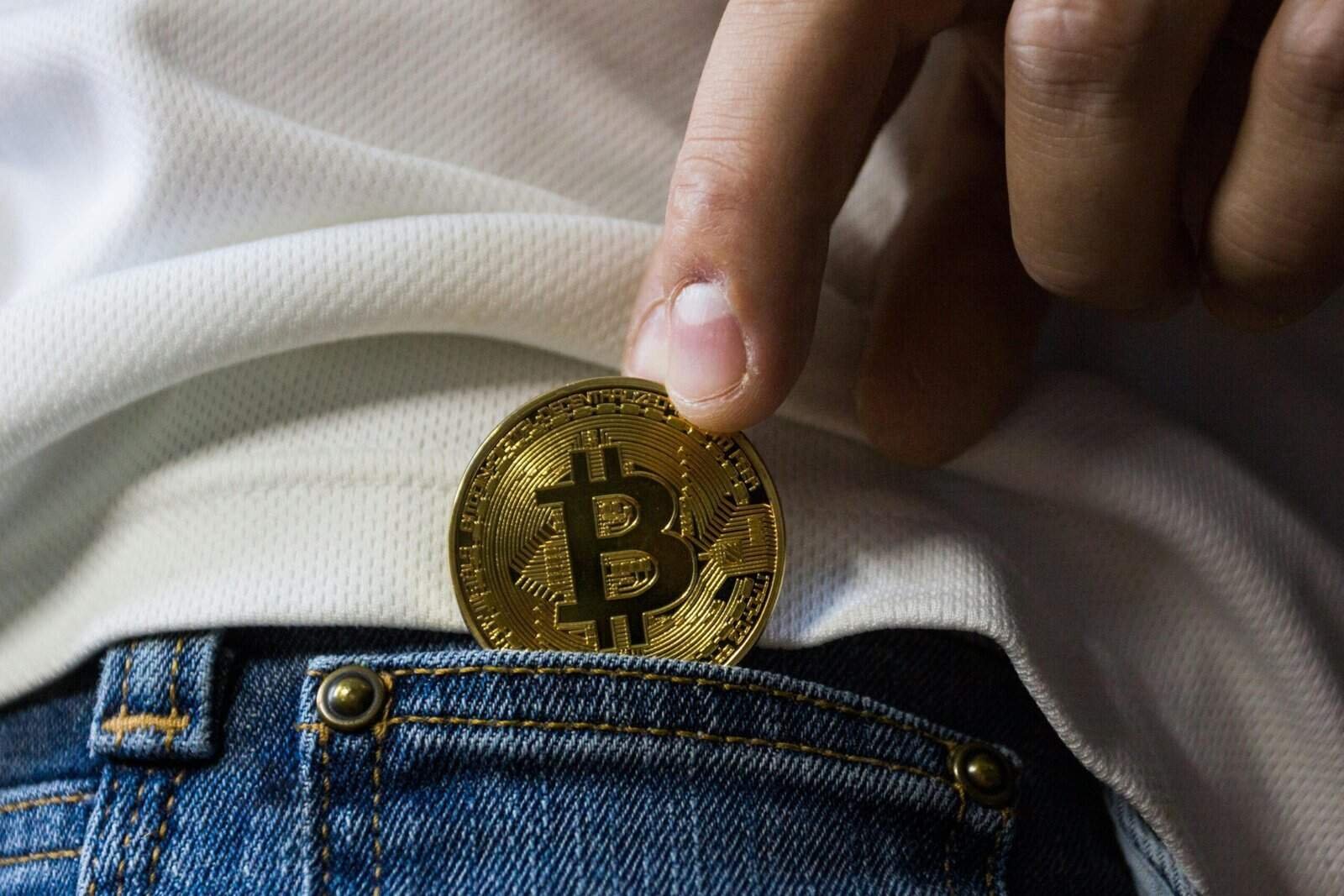? Which U.S.-regulated crypto exchanges should you consider this year, and what does “regulated” actually mean for your money and trading activity?

A quick answer to get you started
You’ll find that “regulated” doesn’t mean one single thing in crypto — it’s a patchwork. Some platforms are registered with federal agencies like FinCEN as money services businesses (MSBs). Others hold state money transmitter licenses (MTLs) or New York’s BitLicense, operate under a state trust charter, register with the SEC as broker-dealers, or are subject to CFTC oversight for derivatives. Major U.S.-accessible platforms such as Coinbase, Gemini, Kraken’s U.S. arm, Binance.US, Bittrex, Robinhood Crypto, PayPal/Venmo (crypto services), SoFi, and regulated derivatives venues like CME and Bakkt each have different combinations of these permissions.
Below you’ll get a clear breakdown of what each regulatory category means, a table summarizing the regulatory posture of leading exchanges (based on public information through mid‑2024), how to verify current status yourself, and practical guidance so you can make safer choices.
What “regulated” means in crypto — a short explainer
Regulation in crypto is multi-layered. When you ask whether an exchange is “regulated,” you should be asking which types of regulation and in which jurisdictions apply to that platform. Here are the most important categories:
- FinCEN (MSB) registration: This federal registration requires anti-money laundering (AML) and reporting procedures. Most U.S.-facing exchanges are MSBs.
- State money transmitter licenses (MTLs): Many states require a license to operate as a money transmitter; these vary by state and impose compliance obligations.
- NYDFS BitLicense / trust charter: New York offers a specific licensing framework for digital currency businesses (BitLicense) and regulates trust companies that custody assets. Having a BitLicense or a trust charter signals relatively strict oversight.
- SEC (securities) registration: If an exchange lists tokens the SEC deems securities, it may need to register as a national securities exchange, operate a registered alternative trading system (ATS), or have broker-dealer registrations. The SEC has brought enforcement actions against several crypto platforms for alleged securities violations.
- CFTC (commodities/derivatives) oversight: Platforms offering futures, swaps, or leveraged products tied to crypto often fall under CFTC rules. Regulated U.S. derivatives venues include CME and Bakkt.
- Banking charters / FDIC pass-through: Some crypto firms partner with or obtain bank charters for custody, settlement, or custodial services; that can affect deposit protections and operational safeguards.
You should evaluate an exchange for the specific protections you want: AML controls, custody protections, insurance, segregation of customer assets, FDIC/SIPC coverage (rare or limited for crypto), and whether the platform legally offers the asset types you want to trade.
Major U.S.-accessible exchanges — regulatory snapshot
Below is a table summarizing the typical regulatory credentials you’ll see for leading exchanges. This is meant to give you a starting point; status can change, and regional availability varies. Where possible, items are stated conservatively (e.g., “registered with FinCEN as MSB” rather than asserting every single state license).
| Exchange / Venue | US entity? | FinCEN (MSB) | State MTL / BitLicense / Trust | SEC registration (exchange / broker‑dealer) | CFTC / derivatives | Custody / bank charters / notes |
|---|---|---|---|---|---|---|
| Coinbase (Coinbase Global, Coinbase Custody) | Yes | Registered as MSB | Multiple state MTLs; holds NY BitLicense / NY trust entity for custody | Not a national securities exchange; has been subject to SEC enforcement and applied for exchange status | Offers staking/custody; derivatives via partners | Custody services via trust entity; insurance for custodial assets (policy limits) |
| Gemini Trust Company | Yes | Registered as MSB | NYDFS-chartered trust company and BitLicense | Broker‑dealer referrals for regulated services as applicable | Offers limited derivatives via partnerships | NY trust charter, regulated custody, insurance coverage on custody balances |
| Binance.US | Yes (separate from Binance.com) | Registered as MSB | Holds some state MTLs; availability restricted in some states | Not registered as a national securities exchange; subject to investigations/enforcement | Limited derivatives on US platform; derivatives on global platform not US-regulated | Operates under a US entity with separate compliance; status has been under regulatory scrutiny |
| Kraken (Kraken US) | Yes (US affiliate) | Registered as MSB | Holds many state MTLs; service availability varies by state | Not a registered national securities exchange; subject to regulatory actions | Offers staking; derivatives historically via non-US entities; limited US derivatives | Provides custodial services via US entities; has faced past enforcement settlements |
| Bittrex (Bittrex Global & Bittrex US) | Yes (Bittrex US) | Registered as MSB | Many state MTLs; service availability varies | Not a national securities exchange | No regulated derivatives on US platform | Custody via US arms; previously adjusted services after regulatory engagement |
| Bitstamp (Bitstamp USA) | Yes (US arm) | Registered as MSB | Limited state MTL coverage | Not a national securities exchange | No major US derivatives offering | Focus on spot trading; US operations under regulatory registrations |
| Robinhood Crypto | Yes (Robinhood Financial / Crypto) | Registered as MSB | Holds state MTLs as required | Robinhood Financial is a registered broker‑dealer for securities; crypto operations are special-case | No regulated derivatives in crypto on platform | Crypto custody within broker framework; representation of assets is different than bank deposits |
| eToro US | Yes (limited US service) | Registered as MSB | Holds state MTLs in limited states | eToro USA operates under broker‑dealer relationships for stock trading; crypto limited | No US derivatives on eToro US | Crypto investing offered with regional restrictions and partner custody |
| SoFi Crypto | Yes (through SoFi subsidiaries) | Registered as MSB | State licenses via SoFi / partners | SoFi is a regulated bank & broker‑dealer in parts | No crypto derivatives | SoFi Bank is FDIC‑insured for fiat deposits; crypto custodial assets held separately |
| PayPal / Venmo (crypto services) | Yes | Registered as MSB | State MTLs in many states | No national securities exchange | No derivatives | Custody and transaction services; limited coin offering; fiat backed via bank partners |
| CME Group (Bitcoin & Ether futures) | Yes | N/A (not MSB) | N/A | Registered derivatives exchange (regulated by CFTC) | CFTC-regulated crypto derivatives | Regulated exchange for institutional futures with margin protections |
| Bakkt (futures, custody) | Yes | N/A | N/A | CFTC-regulated derivatives venue (physically-settled futures) | CFTC oversight | Custody solutions with institutional focus and regulatory interfaces |
Notes on the table:
- “Registered as MSB” is a common baseline for U.S.-facing crypto firms. It requires AML compliance but does not alone make a platform “safe” in the sense of deposit insurance.
- State MTL coverage is fragmented: an exchange may be licensed in many states but not all. New York’s BitLicense is stricter than many MTL regimes.
- SEC treatment of tokens is uncertain and evolving — an exchange could be fully compliant for fiat/spot crypto yet face SEC scrutiny for listing tokens the SEC views as securities.
- Derivatives trading platforms in the U.S. are a more clearly regulated category because they fall under long-established futures law and the CFTC’s jurisdiction.
Why the regulatory mix matters to you
Regulatory status affects your security, legal recourse, and what protections apply:
- AML/compliance (FinCEN): Platforms registered with FinCEN must implement KYC/AML, suspicious activity reporting, and record-keeping. That helps reduce certain illicit-use risks and makes it harder to use the platform anonymously.
- State licenses and BitLicense: State-licensed platforms must follow rules about consumer protection, capital requirements, and operational oversight. BitLicense holders typically undergo stricter review and continual supervision.
- Custody regulation: A trust charter or custodial licensing usually requires segregation of customer assets and specific custody controls. That can reduce the risk of commingling your funds with the platform’s operating assets.
- SEC treatment of assets: If a platform is trading tokens the SEC considers securities without proper registration, it may face enforcement action that affects users — e.g., forced delisting of assets, freezing of some services, or legal disputes.
- CFTC-regulated derivatives: Trading on a CFTC-regulated venue like CME gives you access to regulated clearing, margining, and dispute resolution for futures products.
- FDIC/SIPC: These protections typically cover fiat bank deposits or certain securities accounts, not crypto assets themselves. Check whether the platform’s fiat holdings are held at FDIC-insured partner banks and whether brokerage accounts carry SIPC coverage (which generally doesn’t protect against loss of crypto).

How to verify an exchange’s regulatory claims
You should always verify claims directly through authoritative sources. Here’s how:
- FinCEN MSB registration: Check the FinCEN MSB registrant list or the exchange’s legal disclosures that include MSB registration numbers.
- State MTLs & BitLicense: Search individual state regulator databases (state banking or financial services departments) or the NYDFS licensee directory for BitLicense/trust charters and enforcement history.
- SEC filings: Look for SEC forms (e.g., Form BD for broker-dealers) or public enforcement actions on the SEC website.
- CFTC registration: For derivatives platforms, confirm registration and DCO/DCM status on the CFTC website.
- Corporate disclosures and terms of service: Reputable exchanges publish legal pages with regulatory notices, MSB numbers, and a list of jurisdictions served.
- Independent coverage: Use reputable news sources and regulator press releases to confirm recent enforcement actions, consent decrees, or settlements.
- Community & audits: Some platforms publish proof-of-reserves, audit reports, or third-party attestations. Confirm who performed the audit and whether it’s a full proof-of-reserves or limited attestation.
Practical checklist before you sign up or deposit
When you evaluate a platform, run these checks:
- Confirm the exchange’s legal entity and U.S. registrations.
- Check state-level licensing where you live; some platforms block residents of specific states.
- Understand custody: Who holds the private keys? Does the exchange custody your assets, or do they provide custodial services through a regulated trust?
- Read the terms of service for bankruptcy clauses, asset commingling language, and dispute resolution.
- Look for insurance: Does the platform claim insurance for custodial assets? Ask what the policy covers (hot wallets vs. cold storage) and who the insurer is.
- Check fiat banking arrangements: Are fiat deposits held at FDIC-insured banks?
- Review past enforcement history: Have regulators fined or restricted the platform recently? What were the issues?
- Start small: Use minimal funds at first while you test withdrawals and the user experience.
- Use two-factor authentication (2FA) and device-level security.
- Consider custody alternatives: For long-term holdings you value highly, consider self-custody or reputable third-party custodians with independent charters.

Common regulatory red flags you should watch for
You’ll spot potential trouble if you see these signs:
- Vague or missing legal disclosures about entity, jurisdiction, or licensing.
- Claims of FDIC or SIPC coverage that are misleading or only apply to fiat in certain accounts.
- No clear audit reports or unverifiable “proof-of-reserves” claims.
- Frequent legal disputes or sudden withdrawal restrictions without clear prior notice.
- Promises of guaranteed returns or high-yield staking without clear, regulated custody or counterparty transparency.
- Management or ownership opacity, or frequent management turnover after enforcement actions.
Regulated derivatives venues — why they matter for institutional traders
If you trade futures or leveraged products, regulated venues are a different animal:
- CME Group: Offers Bitcoin and Ether futures regulated under CFTC rules with a cleared, centrally cleared structure and established margining.
- Bakkt: Launched physically-settled Bitcoin futures under CFTC oversight and offers custody for institutional clients.
- Options and OTC desks: Many OTC desks operate within regulatory frameworks through brokerage or prime broker relationships, and large institutional desks may rely on regulated clearinghouses.
For leveraged and institutional instruments, U.S. regulation is typically stricter and more transparent than offshore derivates platforms.

How SEC/CFTC actions impact exchanges and you
Regulatory enforcement can change which assets an exchange can legally offer. The SEC has taken an increasingly active role in pursuing alleged unregistered securities sales in crypto. The CFTC’s classification of assets as commodities (e.g., Bitcoin, Ether) has given it jurisdiction over derivatives but not necessarily spot markets.
What should you watch for:
- Enforcement announcements: If the SEC sues an exchange, token listings can be affected immediately.
- Asset listings and delistings: Exchanges may preemptively delist tokens to avoid enforcement risk.
- Civil penalties: Settlements or penalties can affect platform liquidity and customer access.
- Structural changes: Exchanges may alter custody, product offerings, and compliance programs in response to enforcement.
State-by-state variation — it matters for where you live
Because licensing is state-driven, an exchange’s offerings can vary significantly by state. For example, an exchange might be fully available in most states but restrict residents of New York, Texas, or other states unless it meets specific licensing requirements.
If you live in a state with stricter rules (New York, for example), you’ll want to ensure the platform has the NYDFS license or an alternative trust-chartered custodian in place. Always verify the exchange’s resident-specific pages or terms of service for state availability.

Custody vs. trading — understand the difference
When an exchange says it “holds” your crypto, there are distinctions you need to grasp:
- Custodial exchange wallets: The exchange holds the private keys. If the firm fails or mismanages funds, your assets can be at risk unless protected by insurance or segregation rules.
- Non-custodial or self-custody: You control private keys; you bear custody risk and responsibility.
- Third-party custodians: Some exchanges use regulated trust companies or licensed custodians to hold assets, which can offer stronger segregation and clearer remedies.
- Proof-of-reserves: A proof-of-reserves report can increase transparency but check methodology and whether it’s an audit or a limited attestation.
Best practices for safer crypto usage on regulated platforms
You should adopt sensible practices to reduce risk:
- Use regulated platforms for fiat on/off ramps and active trading when possible.
- For long-term holdings of significant value, consider self-custody with hardware wallets or reputable institutional custodians.
- Diversify across platforms if you keep funds on exchanges: don’t concentrate all balances on one exchange.
- Keep small fiat balances on exchanges and withdraw excess to trusted custodial solutions.
- Maintain strong account security: unique passwords, hardware or app-based 2FA, and a secure recovery phrase storage plan.
- Monitor regulatory news about the platforms you use and act if you see restrictions or enforcement actions.
Common misconceptions you should avoid
- Misconception: “If an exchange is registered with FinCEN, my crypto is insured.” Reality: FinCEN registration mandates AML compliance — it doesn’t provide deposit insurance.
- Misconception: “SIPC/FDIC protects my crypto.” Reality: SIPC covers certain brokerage securities, and FDIC covers bank deposits; neither reliably covers crypto assets unless explicitly stated and structured.
- Misconception: “All U.S. exchanges are fully regulated and equivalent.” Reality: The level and type of regulation vary widely; compare licenses and charters, not just logos.
Quick how-to: Verify a platform right now
- Visit the platform’s legal or regulatory disclosures page and note entity names and license numbers.
- Cross-check FinCEN MSB registration via the exchange’s MSB number or FinCEN lookup.
- Search state regulator databases (e.g., Department of Financial Services for NY, Department of Financial Protection and Innovation in California where applicable).
- Check the SEC and CFTC websites for enforcement actions or registration details.
- Look up independent news coverage and recent audits or attestations.
Example scenarios and what to do
- Scenario: You live in New York and the exchange does not list a BitLicense. Action: Don’t assume it’s available or safe; look for alternatives with a NYDFS license (e.g., Gemini) or a clear NY trust-chartered custody arrangement.
- Scenario: You hold a large balance and the exchange offers an “insurance” claim. Action: Read the policy fine print — many policies only cover hot wallet theft and not exchange insolvency or custodial mismanagement.
- Scenario: An exchange announces token delistings after an SEC filing. Action: Move affected assets off the platform if you’re concerned about access, and track regulatory developments.
Final recommendations — how to choose what’s right for you
You should choose an exchange based on your priorities: regulatory oversight, fiat on/off ramps, custody model, supported assets, fees, and user experience. For most retail users, prioritize:
- Platforms with clear U.S. legal entities and MSB registration.
- Exchanges that hold state licenses where you reside and — if you’re in New York — a BitLicense or equivalent trust charter.
- Confirmed custody protections and transparent insurance disclosures.
- Reputable derivatives venues (CME/Bakkt) for futures exposure rather than unregulated offshore leveraged products.
- Personal security practices (self-custody for long-term holdings, small exchange balances, 2FA).
Closing summary
Regulation in crypto is fragmented. When you ask which exchanges are “regulated” in the U.S., you should parse the type of regulation: federal MSB registration, state licenses (including NYDFS BitLicense or trust charters), SEC broker/exchange status for securities, and CFTC oversight for derivatives. Major U.S.-facing exchanges usually combine MSB registration with varying state licenses; a few have stricter trust charters or NYDFS oversight. For derivatives, venues like CME and Bakkt offer clear CFTC-regulated products.
Before you deposit meaningful funds, verify an exchange’s public regulatory disclosures, confirm state availability for your residence, and follow the checklist above. If you want, tell me which exchanges you’re considering and what protections matter most to you, and I’ll help you compare them step by step.
